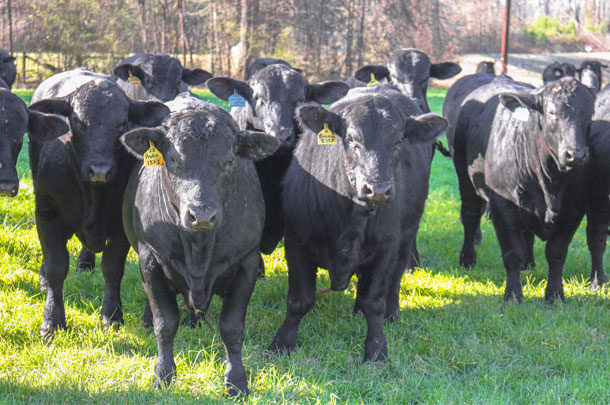By any measure, Yao is an exceptional and well-known basketball player. And yet, in two years spent living in Latin America, I never once heard of him. Why? He doesn’t play soccer.
You may wonder what in the world Yao Ming, basketball or soccer has to do with beef cattle genetics. In any sport or business, one of the most critical elements of success lies in choosing the right team. If I wanted to win a basketball game, I would be quite likely to try to recruit the likes of Yao Ming, Michael Jordan, LeBron James, Kobe Bryant, or Shaquille O’Neal. By contrast, if the goal were to win a match of soccer, names like Leonel Messi and Cristiano Ronaldo might come to mind. Winning with the genetics you select is much the same: their abilities must align with your goals in order to be effective.
Begin with the end in mind
When setting out to select your next herd sire, you must begin by identifying the goals for your operation. Here are some questions that might help you as you undertake this process:
- Will I be breeding heifers?
- Will I be selling calves at weaning?
- Will I be selling finished cattle on a quality-based grid?
- Will I be retaining heifers as replacement females?
Your answers to these questions will help you to define what traits are needed in your bull. For a genetic selection decision to make an economic impact on your ranch, it must result in increased value at the point of sale for calves. Identifying this point of sale prior to setting out to select a bull will allow you to choose genetics suited for this particular purpose.
Defining your business
Bill is a rancher in southern Idaho. He sells all of his calves in the fall when they come off summer range. He purchases bred heifers or cows for replacements as needed. While buying a calving ease bull sounds good, Bill isn’t breeding any heifers, and might give up 20-plus pounds at birth by selecting for lighter birth weights than necessary. A carcass bred bull seems like it would keep the buyers happy, but if he sires a slower growth rate, selecting this bull would actually result in a loss of potential revenue for Bill.
Everyone likes to hear the word maternal as it relates to their herd sire, but if Bill doesn’t hold back replacement females, that trait has no economic impact on his calf crop. For a rancher in Bill’s situation, the best member of their herd sire team would be a growth bull – one that will maximize weaning weights going onto the truck in the fall. While this bull wouldn’t be the ideal fit for every breeding application, he would be the best option for a cattleman operating in a scenario like Bill’s.
Finding the right sire
In Bill’s scenario, we’ve decided the bull which would make him the most money would be a growth sire. So, what makes a bull a growth sire? One simple point of evaluation would be the weaning weight (WW) expected progeny differences (EPDs) of the potential bulls available for purchase or lease. Another important consideration would be breed composition. If Bill wants black calves, an Angus or Angus cross sire would be his best bet. If he’d like to add additional hybrid vigor and growth rate, and isn’t concerned about coat color, a Charolais bull might be considered. In either scenario, evaluating the phenotype of the potential sire to find a bull with additional mass, width and power would be advantageous when selecting a growth sire.
Different strokes for different folks
Your herd sire doesn’t have to try to do everything all at once. Just because I played five different sports in Little League doesn’t make me an Olympian in any of them. Choose Yao Ming to play basketball and Leo Messi to play soccer. Let terminal bulls make great steaks and maternal bulls make great cows. Put calving ease bulls on your heifers and growth bulls on your cows. Select a bull which is bred to make money in your particular production scheme, and you will. ![]()
Christensen owns Christensen Genetics LLC, a company dedicated to genetic improvement of client herds through custom embryo production and leasing of top end bulls. Learn more at christensengenetics.com, or contact him directly at (208) 589-9988.
PHOTO: Choosing a herd sire comes down to identifying the goals that spell profit on your ranch. Photo by David Cooper.









